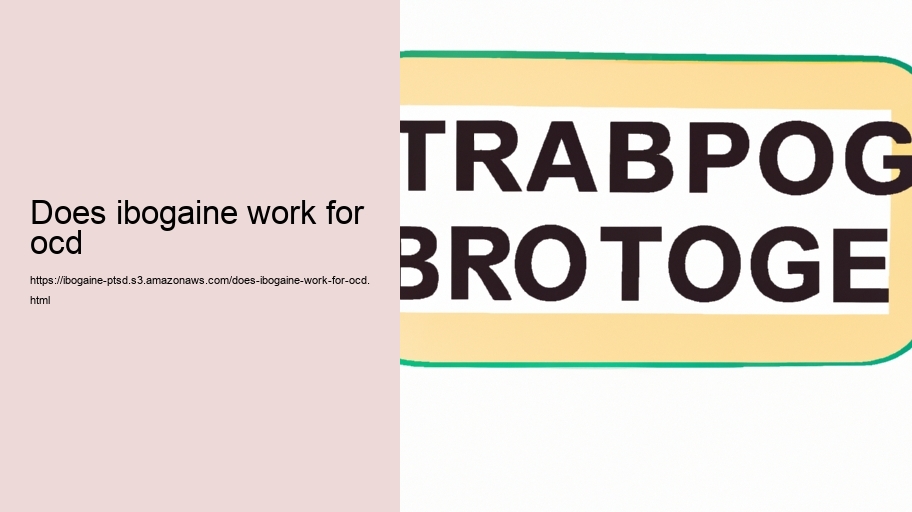Ibogaine, a naturally occurring psychoactive substance found in the roots of the African shrub Tabernanthe iboga, has been the subject of much interest and debate within both medical circles and alternative treatment communities. Originally used for ritualistic purposes by indigenous people in West Africa, ibogaine has gained attention in the modern era for its potential application in treating addiction and various psychiatric conditions. However, when it comes to Obsessive-Compulsive Disorder (OCD), the efficacy of ibogaine is not well-established. In this essay, we will explore what is known about ibogaine’s mechanism of action, current research findings related to OCD treatment, and consider safety issues surrounding its use.
The intrigue around ibogaine stems from anecdotal reports and a handful of studies suggesting that it may interrupt addiction patterns—particularly opiates—potentially offering a reset button for individuals struggling with substance abuse. Ibogaine's proposed mechanism involves several neurotransmitter systems including serotonin (5-HT), dopamine (DA), glutamate (Glu), and opioid receptors. Given that serotonergic pathways have been implicated in both addiction and OCD pathophysiology, there's theoretical groundwork for considering whether ibogaine could impact OCD symptoms.
OCD is characterized by intrusive thoughts (obsessions) and repetitive behaviors or mental acts (compulsions) intended to neutralize these thoughts. Standard treatments often involve selective serotonin reuptake inhibitors (SSRIs) which adjust serotonin levels in the brain as well as cognitive-behavioral therapy which helps patients challenge their obsessional thinking patterns.
To date, there are no large-scale clinical trials that evaluate the efficacy of ibogaine specifically for OCD; most evidence remains anecdotal or derived from broader psychopharmacological research. Some argue that because ibogaine influences serotonin levels—a common target in treating OCD—it might also offer therapeutic benefits for those suffering from obsessive-compulsive symptoms. However, without rigorous scientific data supporting this claim through controlled clinical trials focusing on OCD populations, it remains speculative at best.
Safety concerns are another critical aspect when discussing any potential new treatment modality like iborgaine. Ibogaine administration can lead to acute cardiovascular risks such as arrhythmias or heart failure – particularly worrisome given that mental health medications often require long-term management rather than single-dose interventions. Additionally, other side effects could include ataxia, hallucinations during the acute phase post-ingestion—which some patients find distressing—and neurotoxicity with high doses or prolonged use.
Moreover, psychotropic substances like ibogain exert complex effects on mind states; they may inadvertently exacerbate certain psychiatric symptoms depending upon how individuals process these experiences psychologically. Given that individuals with OCD typically already struggle with anxiety-provoking intrusive thoughts or rituals, introducing a powerful psychoactive compound into their system poses significant unknowns regarding psychological wellbeing.
In conclusion, while intriguing connections exist between serotonergic modulation offered by drugs like SSRIs—which are effective for many people with OCD—and the pharmacological profile of ibogain as it relates to addictive behavior disruption; we do not have conclusive evidence supporting its use specifically for treating Obsessive-Compulsive Disorder. Furthermore, given substantial safety concerns associated with its use—the risk-to-benefit ratio does not currently seem favorable enough to recommend such an approach over established treatments without further research demonstrating clear efficacy alongside acceptable safety profiles tailored towards an OCD population.
